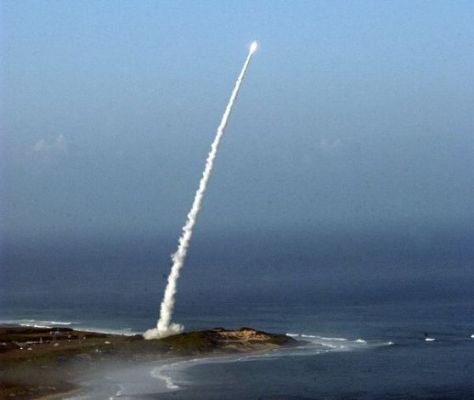Bruno Gruselle, Senior Fellow at the Fondation pour la Recherche Stratégique in Paris, published a Transatlantic Missile Defense issue brief titled “Missile Defense in NATO: A French Perspective.” This issue brief explores the evolution of France’s stance towards a NATO missile defense collective.
In France, missile defense comes with a long and complicated history. When the U.S. Congress passed the “National Missile Defense Act of 1999,” which called for the development and deployment of a U.S. national missile defense system, Paris reacted negatively. At that time, France still considered missile defense to be both unnecessary and destabilizing. French policy makers still considered the 1972 Anti-Ballistic Missile (ABM) Treaty and the doctrine of Mutually Assured Destruction to be the cornerstones of strategic stability. French thinkers viewed missile defense as jeopardizing both the doctrine and the Treaty, as well as risking a new arms race with Russia.
Paris also feared that missile defense would undermine France’s nuclear posture. Experts in Paris insisted that their nation’s nuclear capability remain the only strategic system protecting France’s vital interest. The supremacy of France’s nuclear deterrent in French doctrine ruled out coexistence with a defense strategic system that provided protection to populations and territory.
Moreover, most French security experts doubted the technological feasibility of ballistic missile defense. They thought that only the United States would be foolish enough
to spend huge amounts of money on unproven technologies that lacked operational or political usefulness. Instead, the French defense policy community viewed missile defense merely as an American “economic weapon” used to defeat the Soviet Union and win the Cold War.
Transatlantic Missile Defense Issue Briefs
Atlantic Council Work on Transatlantic Missile Defense
In October 2010, the Atlantic Council hosted a conference on missile defense entitled “Transatlantic Missile Defense: Looking to Lisbon.” The conference featured senior U.S. policymakers and experts from across the transatlantic community in a conversation about the political, technical, and budgetary issues relating to transatlantic missile defense in the weeks before the November 2010 Lisbon NATO summit. These issue briefs, written by discussants at the conference, provide a European perspective to the transatlantic debate on the future of missile defense within the NATO Alliance.
These briefs and the recent conference continue the work of the Atlantic Council on transatlantic missile defense. Previous activities include a workshop on NATO-Russia
missile defense cooperation in November 2010, a conference on the implications of the Obama administration’s Phased Adaptive Approach missile defense policy in
October 2009, as well as a conference on the Bush administration’s ‘Third Site’ missile defense architecture in 2007.
The Atlantic Council’s work on transatlantic missile defense is sponsored by Raytheon.
Image: missile-defense%20(resized)_1.jpg
